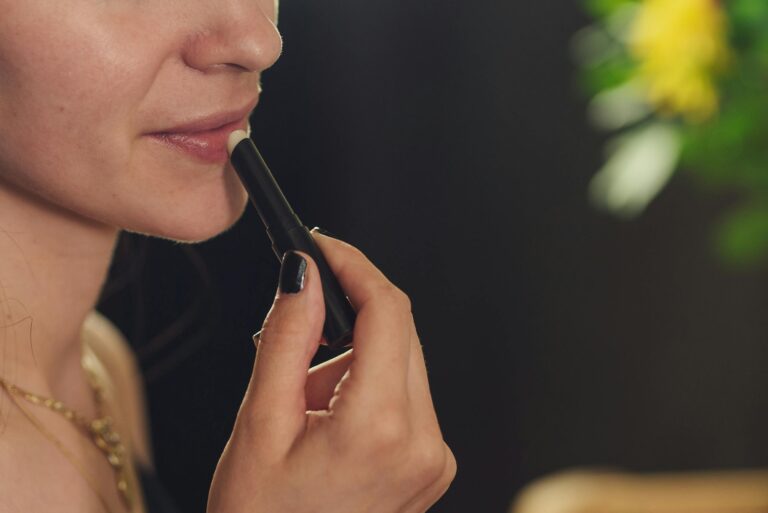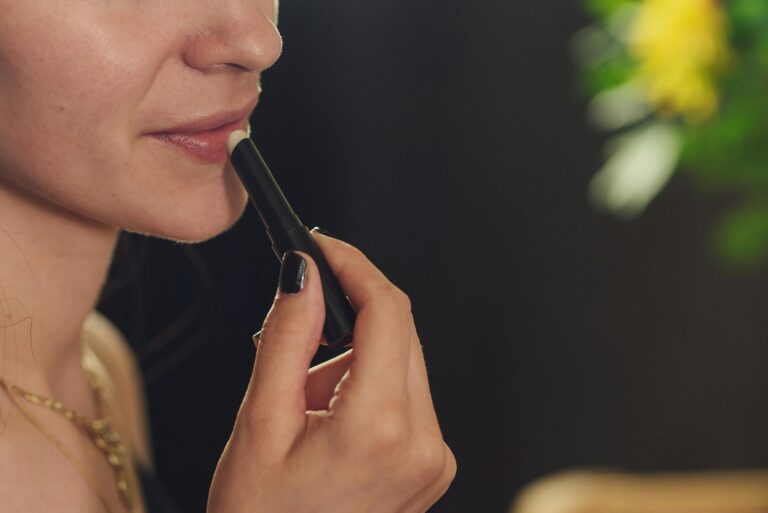A captivating smile is a powerful asset, but hyperpigmented lips can hinder one’s confidence. Whether caused by sun exposure, hormonal changes, or lifestyle factors, treating hyperpigmentation on the lips requires a tailored approach.
In this guide, we’ll explore the causes of hyperpigmentation, effective treatment options, and lifestyle changes to restore your lips to their natural radiance.
Understanding Hyperpigmentation on the Lips
Hyperpigmentation occurs when the skin produces excess melanin, resulting in darkened areas. On the lips, this can manifest as uneven coloration, dark spots, or a general darkening of the lip skin.
Causes of Hyperpigmented Lips
- Sun Exposure: Prolonged exposure to the sun’s harmful UV rays can contribute to lip hyperpigmentation. Lips lack melanin, the natural pigment that protects the skin from UV damage, making them more susceptible to discoloration.
- Hormonal Changes: Hormonal fluctuations, particularly during pregnancy or while taking oral contraceptives, can lead to changes in skin pigmentation, including the lips.
- Smoking: The chemicals in tobacco smoke can cause lip darkening over time, especially in habitual smokers.
- Inflammation and Trauma: Injuries, irritations, or inflammation of the lips can trigger an increase in melanin production, resulting in hyperpigmentation.
Now that we understand the root causes, let’s explore effective ways to treat hyperpigmented lips.
Treating Hyperpigmented Lips
1. Sun Protection: Shield Your Lips from Harmful UV Rays
Sun protection is a crucial aspect of treating hyperpigmented lips. Applying a lip balm with SPF can shield your lips from the sun’s harmful rays, preventing further darkening and promoting overall lip health. Choose a broad-spectrum lip balm with at least SPF 30 and reapply it regularly, especially when spending extended periods outdoors.
2. Topical Treatments: Targeted Solutions for Lip Hyperpigmentation
Several topical treatments can help lighten hyperpigmented lips. Look for products containing ingredients such as:
- Alpha Arbutin: Known for its skin-lightening properties, alpha arbutin can help reduce melanin production, lightening dark spots on the lips.
- Vitamin C: A potent antioxidant, Vitamin C can inhibit melanin production and brighten the skin. Consider using a lip serum or balm containing stabilized Vitamin C.
- Licorice Extract: Licorice has natural skin-lightening properties and can be found in some lip care products to address hyperpigmentation.
When incorporating topical treatments, be consistent and patient, as results may take several weeks to become noticeable.
3. Chemical Peels: Professional Solutions for Stubborn Pigmentation
For persistent hyperpigmentation, professional treatments like chemical peels can be effective. Dermatologists use chemical peels containing ingredients like glycolic acid or trichloroacetic acid to exfoliate the outer layer of skin, promoting cell turnover and reducing pigmentation.
However, this approach should be discussed with a dermatologist to ensure it’s suitable for your specific skin type and condition.
4. Laser Therapy: Precision Treatment for Targeted Results
Laser therapy is another option for treating hyperpigmented lips, especially when caused by excess melanin. Laser treatments target melanin deposits, breaking them down and encouraging the growth of new, evenly pigmented skin. As with chemical peels, it’s crucial to consult a dermatologist to determine the most suitable laser therapy for your skin.
5. Lifestyle Changes: Nurturing Healthy Lips From Within
In addition to external treatments, lifestyle changes play a crucial role in maintaining lip health and preventing further hyperpigmentation. Consider the following:
- Stay Hydrated: Dehydration can contribute to lip dryness and darkening. Drink an adequate amount of water daily to keep your lips hydrated and healthy.
- Quit Smoking: If you’re a smoker, quitting can significantly improve the health and appearance of your lips. Smoking cessation not only prevents further darkening but also promotes overall skin health.
- Balanced Diet: Ensure your diet includes a variety of fruits, vegetables, and antioxidants. Nutrient-rich foods contribute to overall skin health, reducing the likelihood of hyperpigmentation.
Prevention Tips for Hyperpigmented Lips
Prevention is often the key to maintaining healthy and naturally colored lips. Here are some tips to help prevent hyperpigmentation:
1. Sunscreen Application
Regularly apply a lip balm with SPF to protect your lips from sun damage. Reapply after eating, drinking, or spending extended periods in the sun.
2. Hydration
Keep your lips moisturized by drinking plenty of water and using a hydrating lip balm. Hydration is essential for maintaining the health and appearance of your lips.
3. Healthy Lifestyle Choices
Adopt a healthy lifestyle by quitting smoking and avoiding excessive alcohol consumption. These habits not only contribute to lip discoloration but also have broader health implications.
4. Balanced Diet
Ensure your diet includes a variety of fruits, vegetables, and foods rich in vitamins and antioxidants. A well-balanced diet supports overall skin health, including that of your lips.
Conclusion
Hyperpigmented lips can be a source of concern, but with the right knowledge and a proactive approach, you can restore their natural beauty. From sun protection and lifestyle changes to targeted treatments like laser therapy and chemical peels, there are various options available. Remember, consistency is key, and results may take time, so be patient and diligent in your efforts to achieve naturally colored and radiant lips.
Conclusion
Achieving radiant and healthy lips involves a multifaceted approach, combining sun protection, targeted treatments, professional interventions, and lifestyle adjustments. Understanding the causes of hyperpigmented lips empowers individuals to make informed decisions about their skincare regimen. Whether opting for topical treatments, professional procedures, or lifestyle changes, consistency and patience are key to seeing positive results.
FAQs
Q1: Can I use regular sunscreen on my lips?
While regular sunscreen can provide some protection, it’s best to use a lip balm with a specific SPF formulation. Lip balms are designed to provide protection while also moisturizing delicate lip skin.
Q2: How long does it take to see results with topical treatments?
Results with topical treatments vary, but visible improvement may take several weeks. Consistent application and patience are essential for optimal outcomes.
Q3: Are there natural remedies for treating hyperpigmented lips?
While natural remedies like lemon juice or honey are often suggested, they may not be as effective as targeted treatments. Consulting with a dermatologist is recommended for personalized advice.



